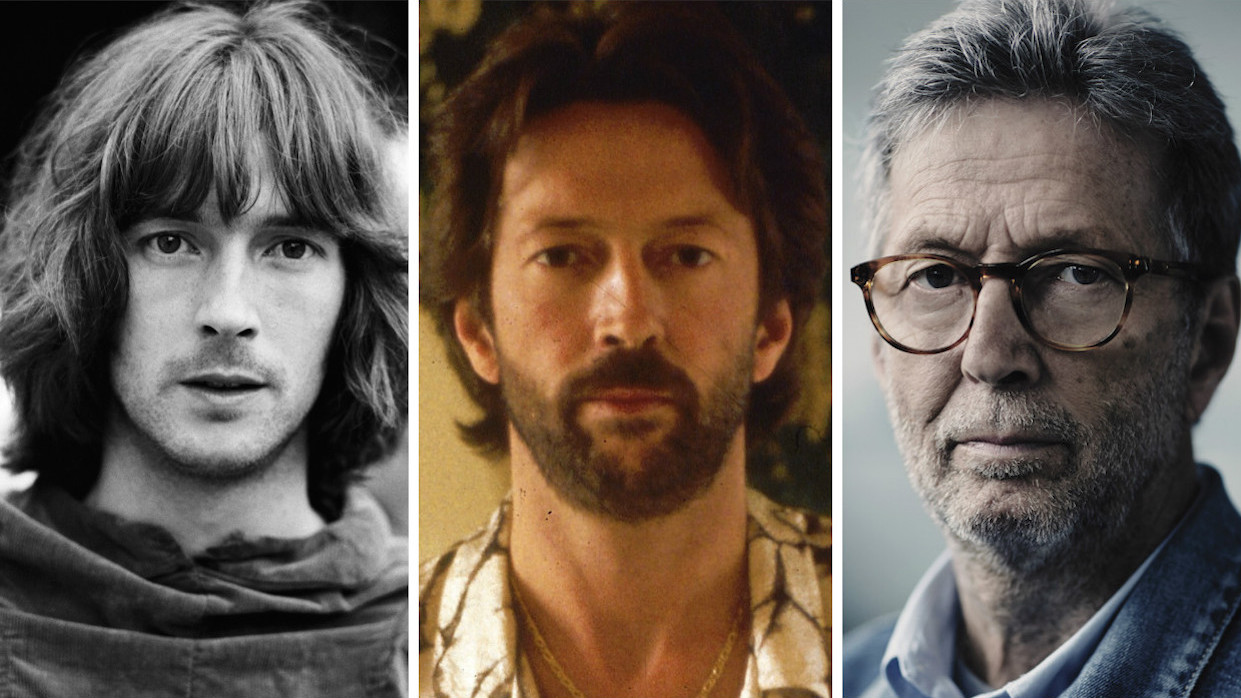Ask a rock musician how they’re doing, and usually you get a courteous but cursory “Fine, thanks”. Not Eric Clapton. No, he is rather more forthcoming than that. Surprisingly so, perhaps, although his lyrical, often torrentially emotional playing these past 50 or so years may have provided a clue as to why.
Classic Rock has been granted an exclusive interview with the guitar legend to coincide with the release of I Still Do, his 23rd solo album. And in answering the enquiry about his health he takes the opportunity to detail some of his recent travails.
“I’ve had quite a lot of pain over the last year,” reveals Clapton, now aged 71. “It started with lower back pain and turned into what they call peripheral neuropathy, which is where you feel like you have electric shocks going down your leg. And I’ve had to figure out how to deal with some other things from getting old.”
If this is starting to sound like an encounter with a moaning pensioner at the bus stop, it’s probably worth remembering that Clapton is not just one of the most fêted instrumentalists in rock history, he’s also in the record books as one of its epic caners.
“Because I’m in recovery from alcoholism and addiction to substances, I consider it a great thing to be alive at all,” he declares. “By rights I should have kicked the bucket a long time ago. For some reason I was plucked from the jaws of hell and given another chance.”
Given Clapton’s candour barely minutes into the conversation, initial fears that he would prove to be an unaccommodating interviewee have been allayed. I had been warned that he might be resistant to trawling through his back pages – which any sentient music lover, faced with an artist of his stature, is surely going to want to do – and prefer to focus on his new album. So when I tentatively propose a full overview of his incredible, albeit turbulent, journey, taking in all his ch-ch-changes, from The Yardbirds to The Bluesbreakers to Cream to Blind Faith to Derek & The Dominos and beyond, I was prepared for a polite but firm negative. Which makes his response all the more pleasing.
“You do what you like,” he says, breezily.
Buckle up.
THE YARDBIRDS
“I was channelling music”
In October 1963, Anthony Topham quit The Yardbirds and was replaced by 18-year-old art student and guitarist Eric Clapton, fresh from The Roosters. With Clapton on board, The Yardbirds would become one of the most accomplished rhythm and blues bands in the UK, and serious rivals to the Rolling Stones.
Is it true you would stand in for Mick Jagger at Ken Colyer’s 51 Club on London’s Charing Cross Road in the early days whenever he got a sore throat?
Not there. But the Stones used to play at a place called The Ealing Club, and it was in Ealing, opposite a pub called the Feathers, I think, that I did that. They played there almost every Saturday night, in a period when Brian Jones was with them, obviously, and when I’m not even sure they had a bass player.
How good were The Yardbirds compared to the Rolling Stones at that point?
About the same. I think Keith [Relf, vocalist] had difficulty because he only had one lung and he had asthma. His ability to give it his all was limited. But the Stones were a bit older than us and a little bit further down the road in terms of confidence and experience. So The Yardbirds followed on. We were never going to catch up. But I think for a while, while we were playing the clubs and before they decided to go for stardom, we were on an equal footing.
Which was the first song you did with The Yardbirds where you were able to cut loose and put your signature on it?
We used to do an instrumental [by Memphis Slim] called Steppin’ Out, or we’d do funny stuff like play [Howlin’ Wolf’s] Smokestack Lightning next to [pop song] Hang On Sloopy! And it was often about creating these artificial crescendos, and that would prompt a lot of pseudo-virtuoso lead guitar playing.
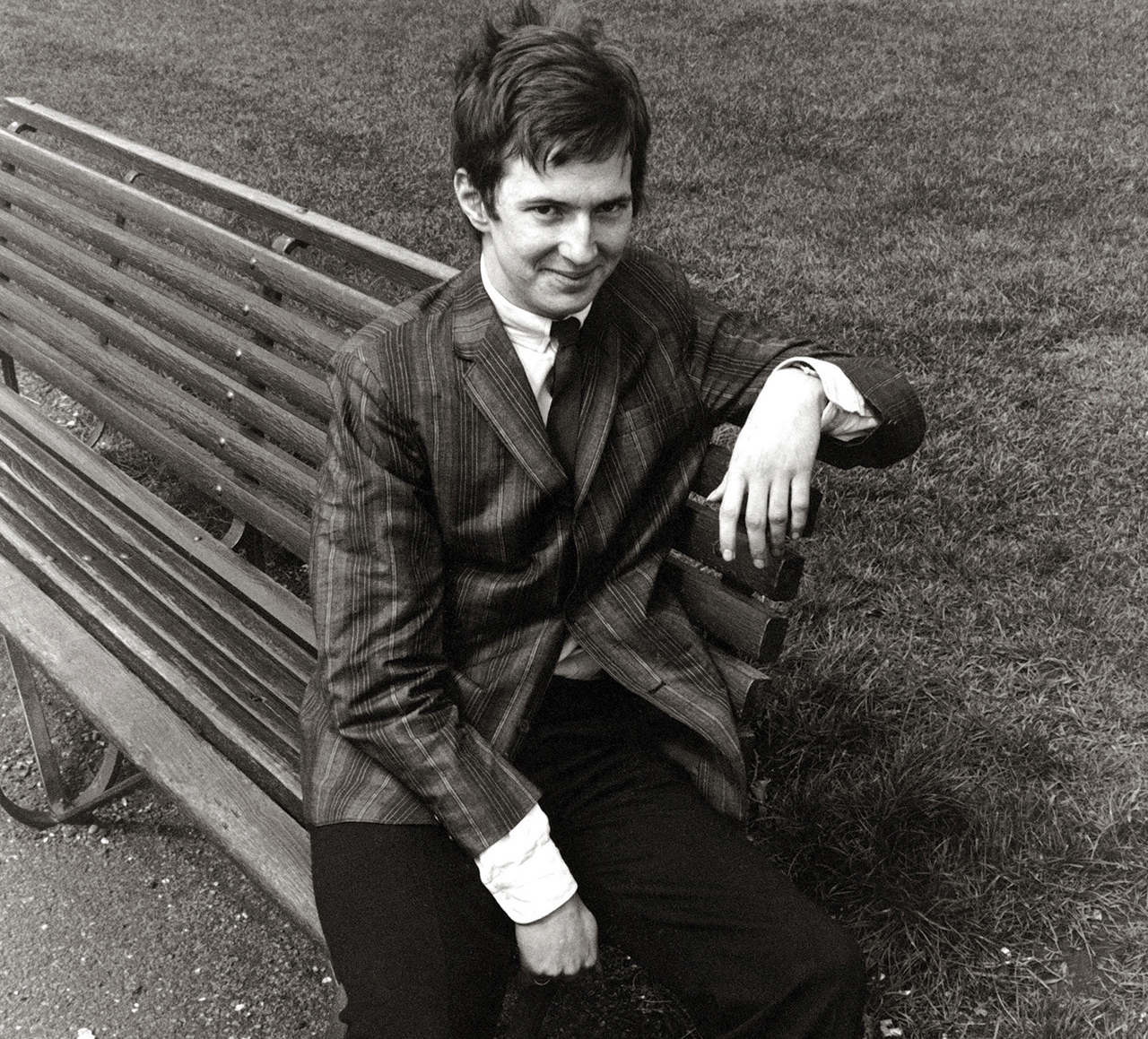
In 1964 The Yardbirds, their reputation growing as fast as Clapton’s, were invited on tour as support to bluesman Sonny Boy Williamson. A prestigious slot, perhaps, although an unimpressed Clapton, with his in-depth knowledge of the blues, knew that he wasn’t the real Sonny Boy who had written Good Morning, School Girl and been killed with an ice-pick, but a surrogate whose real name was Rice Miller and, to avoid confusion, became known as Sonny Boy Williamson II.
Do you think Sonny Boy Williamson II was as stunned as audiences were by your guitar playing?
I don’t think so, no. I don’t think he was stunned by any of it. I think he was seriously disappointed. I found out when I sat down and talked with Robbie Robertson [later of The Band], who knew Sonny Boy very well, and he said Sonny Boy would come back to the States from working with us and say some pretty disparaging things about what we were doing and who we were. He wasn’t impressed at all.
Nevertheless, there must have been legions of young male admirers coming to see you play as much as they were there to see frontman Keith Relf, which was surely unusual: an instrumentalist with his own following?
There were girls too, actually! I had a nice little following, until I quit [in 1965]. There was a grey period when I had ‘retired’ at the age of nineteen, or whatever I was, and then I joined John Mayall and those people followed me there. I was very fortunate. I mean, I think those people responded to what I was channelling, the same as I did, which was the blues.
Were you channelling emotion but also a desire to be technically great?
No, I was channelling music. I was channelling what I heard on record by people that I was following, trying to learn from; I was channelling Freddie King, BB King, Buddy Guy. I was melding all those guys into some new shape. And I think people liked that. Maybe people projected stuff onto that. But for me I was purely trying to turn people on to what I loved: old music.
One of those you ‘turned on’ was Ronnie Spector, wasn’t she? You’d been touring with The Ronettes and, according to your autobiography, one night she “made a move” on you. You say you were besotted with her, “the most sexual creature I had ever laid eyes on”.
Yes! Well that was interesting, wasn’t it? And I think she said to me… Cos we went on tour up and down England on a coach for three months. Can you imagine? Playing in every cinema and theatre all over the country, with Billy J Kramer and all kinds of people. Anyway, she said that I reminded her of Phil [Spector]. He’s a chinless wonder as well. And we do look – or did look – quite similar back then. But it was [a] very short-lived [romance], believe me.”
JOHN MAYALL AND THE BLUES BREAKERS
“I was in the perfect environment”
Annoyed by The Yardbirds’ shift towards pop with their single For Your Love, in March 1965 Clapton left the band. Within a month the blues purist had found the ideal vehicle for his playing.
What did the Blues Breakers allow you to do that The Yardbirds didn’t?
John [Mayall] was a blues archivist. He had the best collection of blues forty-fives – Chicago blues, everything – I’d ever seen in my life. He was a scholar. When he offered me the job [in his band] he offered me a place to live too, in Lee Green. So I stayed with him almost the entire time that I was working with him. And during the day I would just have all these records out on the floor, putting them on the turntable, learning, learning, learning. And that was all I did. I just studied. Because I realised right away that I was in the perfect environment. He only wanted to play blues. Sometimes it would get a bit jazzy. But he wasn’t impressed by rock’n’roll, he didn’t want to be famous, he just wanted to play clubs and have it be ‘real’. And I thought, this is heaven. I can use all this time now just to study my craft. And that’s what I did for almost three years. I just listened and played and listened and played.
And could you tell straight away that people were loving what you were doing?
Yes, I think so. We were playing in some tough environments – the Marquee club, or the all-nighter at the Flamingo where there was some serious music going on: Georgie Fame, Geno Washington… We were quite lightweight compared to them. There was some powerful stuff. I was just starting to find myself. I found myself entirely during that period, I think, in terms of where my limits were. And actually they’re still in the same place. I got as good as I was ever going to get while I was with John. And I think even with the amount of freedom that we had in Cream, I didn’t really learn much more. Because what I was learning was the actual route from Chicago blues and country blues, and it was all there in John’s record collection.
John Mayall’s second album, Blues Breakers With Eric Clapton (1966). Was that the showcase for your work that you’d always dreamed of?
It was, actually. It was the perfect recording session. The great thing was, Mike Vernon, who was producing it and had arranged it with John, had no agenda. There was no one there saying: “We need a single” or “We need a fast one” or “It needs variety” or any of that. We just went into the studio and played our set. And we played the set that we’d been playing every night for the past year, and so it was comfortable. There was nothing spectacular about it, we did one take on everything. The assistant engineer tried to put a microphone in front of my amp and I told him to take it away; I only wanted to be recorded through the room mic. They didn’t understand that. I said: “That’s the way I like it.” And that’s still the same. So that was done in a day, and it was simple, and from my experience simple is always the best.
Who would have been your competition in that period just before Jimi Hendrix came along – Jeff Beck, Jimmy Page, Mick Green, Mick Taylor?
I didn’t see it that way. I didn’t see anybody as competition. Actually, the only person I was really conscious of – and in a way it was because he was really serious – was Albert Lee. Albert was playing with Chris Farlowe. And Albert to me was a very interesting guy, because he was a devotee – and he still is – of the Everly Brothers, and therefore of rockabilly. Also Jimmy Bright and Speedy West were his heroes, and that’s serious country virtuoso playing. Those guys played with Tennessee Ernie Ford. And yet he was playing in an R&B band with a soul singer. So I found all of that really, really interesting and attractive. He just had a great touch. So if there was anyone I was really keen on then it was him. I didn’t even know about… Jeff Beck, when I left The Yardbirds, I went to see him play in a club with The Tridents, I think he was with, and it was great. No doubt about it, he was – is – a pioneer. But it didn’t move me deep down. I didn’t like the way The Yardbirds went off, in that weird kind of pop thing that they did. It was another direction from where I wanted to go, that’s for sure.”
There’s a lot of self-deprecation in your autobiography, so I wondered how that squared with the emergence of the ‘CLAPTON IS GOD’ graffiti on walls in London?
I think that was a put-up job.
Really?
Oh yeah. When was it done? Was it supposedly done during the Yardbirds, or John Mayall period?
I think it was circa Mayall, 1965.
Then I could be wrong. But when we played with The Yardbirds at the Crawdaddy club, there was a guy worked for [Yardbirds manager] Giorgio Gomelsky, and his name was Hamish Grimes. A very sweet guy. It was his job before we came on to stand on the stage and work up the crowd. And we just thought, I don’t know why we need this, we can wind up the crowd. But the management thought it was necessary. So this guy would get them all clapping or yelling. And I’ve always suspected that he was the one who went out there with a pot of paint and a brush and painted that on the wall. I really doubt that it was a genuine fan.
Nevertheless, that was your reputation. There was some serious worship going on, wasn’t there?
Well, not in my presence, no. I mean [laughs], I never felt it. I think it was picked up on by the media. It might have been genuine, but then it became a kind of label and I didn’t see it relating to what I did at all. At the same time, I’m very grateful for it because it got the music I was trying to push, which was blues and country and gospel, underneath the radar instead of pop music. But it gave me a real cross to bear, and I didn’t really want that.
In the sixties you were a bit like Bowie in the seventies: every year a new image, a new approach, a rethink, a radical overhaul… Did you feel like the changingman?
It was moving fast. And I think because I was curious and I wasn’t insecure about my capabilities, I put myself into a lot of different opportunities. I would see something I liked and get in it right away. I wouldn’t just watch or think, “Oh, this wouldn’t work for you”, I’d give it a go. I was always fairly courageous about taking chances, so I moved a lot more than maybe the average guy. And then the other stuff caught up with me and I got stuck. All through the seventies I was really in a mess and I didn’t know what was going on, let alone be curious. Which is sad. I kind of regret losing an awful lot of time to just being a vegetable – pickled.
CREAM
“We were really just having the time of our lives”
Shortly after Blues Breakers With Eric Clapton was released, Clapton went to see Buddy Guy in concert. Impressed by the trio format, he got the idea of forming one himself. Drummer Ginger Baker had a similar idea, and asked Clapton if he wanted to join the new group he was putting together. He did. When Jack Bruce also accepted the invitation, the supergroup The Cream, as they were initially known, was born.
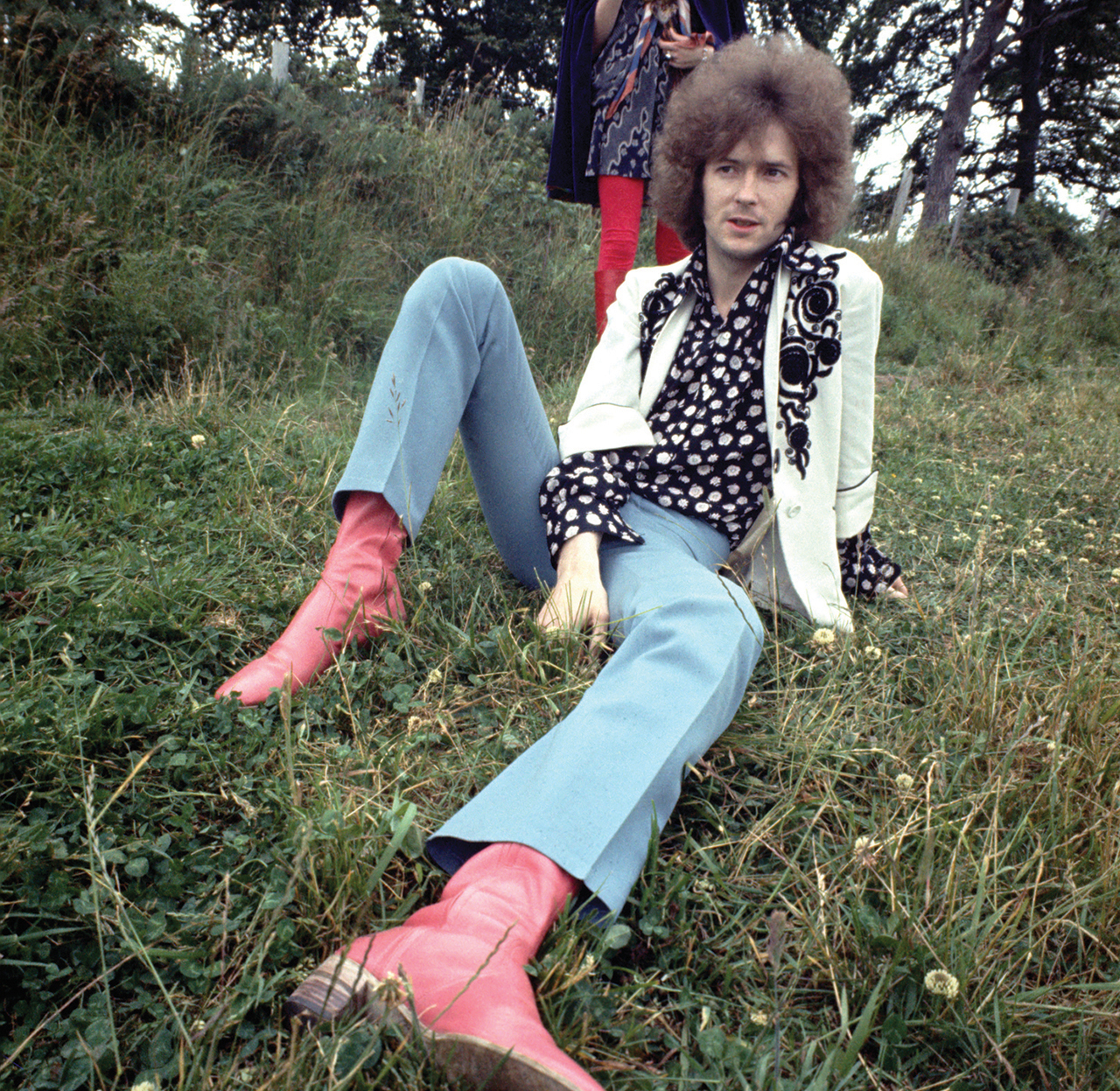
Just months separate the Blues Breakers album and the first Cream album, Fresh Cream. That’s quite a quantum leap. How do you think Fresh Cream compares to the other 1966 landmarks, such as Blonde On Blonde, Revolver, Pet Sounds, Aftermath, Fifth Dimension?
Oof [mimes being winded by disappointment]. I thought the John Mayall album was better than the Cream stuff. I thought we were really weak, to be honest, on record. There were only a few things that I really was proud of – then and now. Most of those were on the farewell album [Goodbye, 1969]. I don’t know. I think we got lost quite quickly with Cream. It was all just smoke and mirrors. We were just trying to keep the thing rolling. We didn’t really have a leader. I think that was part of the problem. The leadership would change in the blink of an eye. One minute it would be me, the next minute it would be Jack, the next it would be Ginger. It wasn’t cohesive. Before we got very far we became a supergroup. It was that thing of trying to catch up with your own, er, myth.
There was a lot of mythologising going on. There was even that one about you doing a Robert Johnson-style pact with the devil. What do you think of all that mythologising about you? Do you take any pleasure in it?
No, I don’t really take it too seriously. I think it’s interesting at best, but I’ve lived on the other side of that. I must admit, I’m guilty of doing it, too, so I have to be fairly non-judgmental about it because I mythologise myself, as I have done with Robert Johnson. I’ve never really subscribed to that particular myth about him selling his soul, but there’s something akin to that in… not selling your soul, but just devoting yourself to something. That could be a better explanation for all of these things.
What do you mean when you say you mythologise yourself? Do you mean you talk up your own past?
No, other people, other heroes that I have.
You’re in an unusual position – you’re the super-fan and the subject of devotion simultaneously.
Yeah. Yeah, I’m trying to think. I do it about Dylan to a certain extent. He manages to create that ethos about himself; he’s a fantastic mysterioso… I like the way he keeps that going, and I will follow that. I’m as guilty as anyone of falling for that.
Cream may have been guilty of excessive instrumental pyrotechnics, but is there anything you’d hold on to? Were Cream the bridge between blues and psychedelia? A compelling hybrid of jazz, blues, hard rock and psych?
We were doing a lot of psychedelic drugs, a lot of hallucinatory stuff. I think that gave us permission to do things that we might have been frightened to do otherwise. And we had fun.
That seems to counter the received idea that it was all tension and aggro within the band.
No. Looking back, the best thing about Cream, for me, was the amount of fun we had, while other people were taking it extremely seriously. And we weren’t! We were really just having the time of our lives, driving around America, playing three songs in two hours. It was crazy! And yet people lapped it up. So we thought, well, they like it, we like it, we don’t know what it is and we don’t care, so let them call it whatever they like.
BLIND FAITH
“We just panicked”
Again demonstrating an impressive lack of regard for commercial prudence, Clapton left the multimillion-selling Cream in late 1968 (all three members decided they’d had enough), after which he formed another supergroup, Blind Faith, with Steve Winwood, Ric Grech and Ginger Baker. They debuted at a free concert in London’s Hyde Park on June 7, 1969, but lasted just one album (with that pre-Yewtree sleeve) before dissolving barely months later. A lack of material plus excessive, unwarranted adulation were among the problems for Clapton this time. Possibly no band since has ever risen then faded away so fast.
What are your memories of the Blind Faith experience? Has hindsight made you more favourable towards it?
I wish I could say so, but… In its infancy it was extremely good, when we were rehearsing and recording, but once we hit the road we all got just, like, rabbit-in-the-headlights syndrome. We just panicked. I panicked. We got the same thing [as Cream]: it was ‘Supergroup II’ – and I think that’s the kiss of death. If you really want to kill a band, call it a supergroup and watch it disappear up its own arsehole.
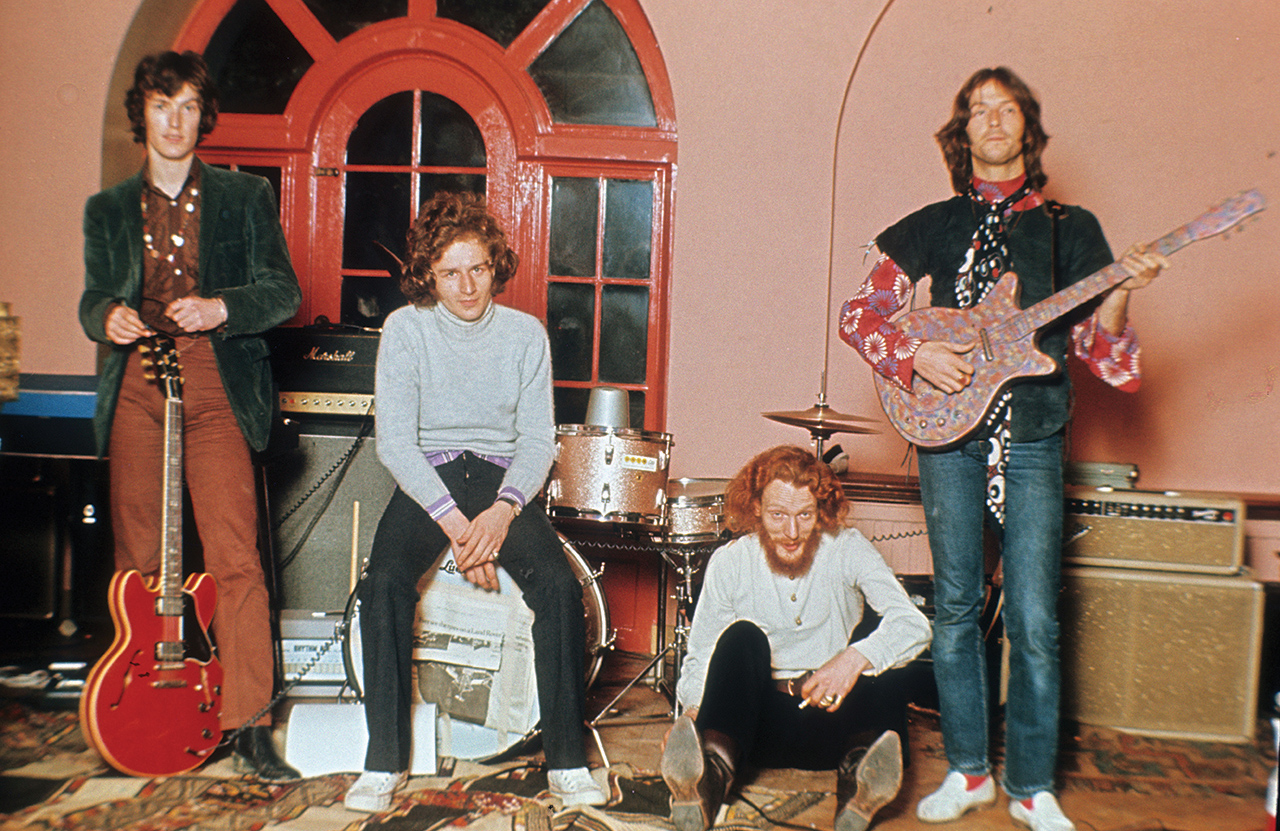
As Blind Faith fell apart, in a sense so did the sixties: Brian Jones died; there were the Manson killings in LA; Altamont… Did it feel like you were living at the end of an era and something was about to give?
Yes, I think it did. It seemed like the sixties was burning out and there wasn’t anything to replace it. I wasn’t suffering from that in terms of the culture, because I was still quietly listening to blues – music for me has always been very strong in the past; I tap into it whenever I need to and it’s never changed. I go back to dance music or blues music or hillbilly music or country music or classical music, and it gives me a safe place to watch the culture go by. The sixties for me were very philosophical and tender and gentle and innocent. But then it became really indulgent. I managed to stay out of the way. And I think quite deliberately I’ve done that culturally, while I’ve been fairly conscientious about making music.”
DEREK & THE DOMINOS
“One of the most powerful bands I’ve ever been anywhere near”
As poducer Glyn Johns puts it, Clapton “never let the grass grow under his feet”. True enough. Because by early 1970 he had formed a new band with keyboard player and singer Bobby Whitlock, bassist Carl Radle and drummer Jim Gordon, and got lashings of help from guitarist Duane Allman.
This phase is memorable for at least three reasons: the double album Layla And Other Assorted Love Songs (1970), arguably the finest work of Clapton’s mercurial career; Clapton’s unrequited love for George Harrison’s wife Pattie; and the band’s gargantuan consumption of hard drugs.
You were just talking about the blues. An ultimate example of you extrapolating the blues was with Derek & The Dominos. What a fantastic album Layla And Other Assorted Love Songs was and still is.
Thank you.
It’s four sides of astonishing music, and yet it’s tied up with all sorts of troubles in your personal life. Even the ballads are intense, and you get a sense from it of the behind-the-scenes drama. So do you have mixed feelings about it now?
Oh no. The stuff that was going on – I was a bachelor when I made that album, really. I had various optimisms about becoming embroiled with Pattie – Pattie Harrison – but we weren’t at that moment in a relationship. It was just something I was trying to write on the wall. And so Layla was that – a proclamation. But it was as anonymous as can be, so she was Layla, I was Derek.
What I really loved about that album was nobody knew who we were. We even did a tour of England playing little clubs and there would be nobody there, because nobody knew who we were so they didn’t come! And yet there was this quartet that was one of the most powerful bands I’ve ever been anywhere near – and I was in it! The rhythm section on its own I would have watched all night. And it was a funny time, cos it worked by word of mouth. As we began touring, bit by bit people were talking about us and saying: “Who is this?” “What is this band?” They kind of figured it out. It was the most pure experience I’ve ever had in terms of making an album and then promoting it anonymously. It’s almost unheard of.
ERIC CLAPTON - THE 70s
“I don’t know how I survived”
Claton’s self-titled debut solo album was released in 1970, a few months before Layla. It would be four years before he released the follow-up, 461 Ocean Boulevard, after which four came in fairly quick succession: There’s One In Every Crowd (1975), No Reason To Cry (1976), Slowhand (1977) and Backless (1978), the latter two produced by Glyn Johns. While Clapton enjoyed success with all of these, behind the scenes it was largely mayhem of a drugs-and-alcohol-influenced kind. By the late-70s, Clapton was running scared of punk (“I felt threatened because I was frightened. I thought these guys were scary, you know?”) and making unpopular pronouncements in the press about Enoch Powell. From the personal to the political, it was all played out in public.
You’re a private person, and yet so much of your life – your trials and tribulations – has been available for all to see. Your narrative – the rise and fall and rise again – is as gripping as any in rock. But it must be weird to have had it all out there because you’ve actually been living it.
[Laughs] I don’t know how I survived, the seventies especially. There was one point there where they were flying me to hospital in St Paul [Minnesota] and I was dying, apparently – I had three ulcers and one of them was bleeding. I was drinking three bottles of brandy and taking handfuls of codeine and I was close to checking out. And I don’t even remember. It’s amazing that I’m still here, really.
With heroin, you weren’t injecting you were snorting, because that enabled you to have more?
Yeah. That was quite wasteful, actually. Financially that’s the last way [you should do it] unless you can really afford it. But it saved my bacon, because doing it intravenously is much more dangerous, obviously, with dirty needles or overdosing.
You once estimated that were spending a grand a week on heroin – the equivalent of eight grand a week now?
Yeah. I was close to running out [of money]. I was running on empty, financially. But I think management was very shrewd – it was Robert Stigwood who was keeping an eye on it. But I think his optimism, and I suppose his hope, was that there would be light at the end of the tunnel. They didn’t police me that much. I was out on a long leash. And I think it was his hope that I would see sense eventually. Which of course I did. But I nearly… I don’t know how close I got… And the people around me too
– I was taking people with me. That’s always the worst part about an addict or an alcoholic: people are dragged along, and sometimes they go down before the principal character.
(Clapton’s then-girlfriend) Alice Ormsby-Gore, you mean?
Yeah.
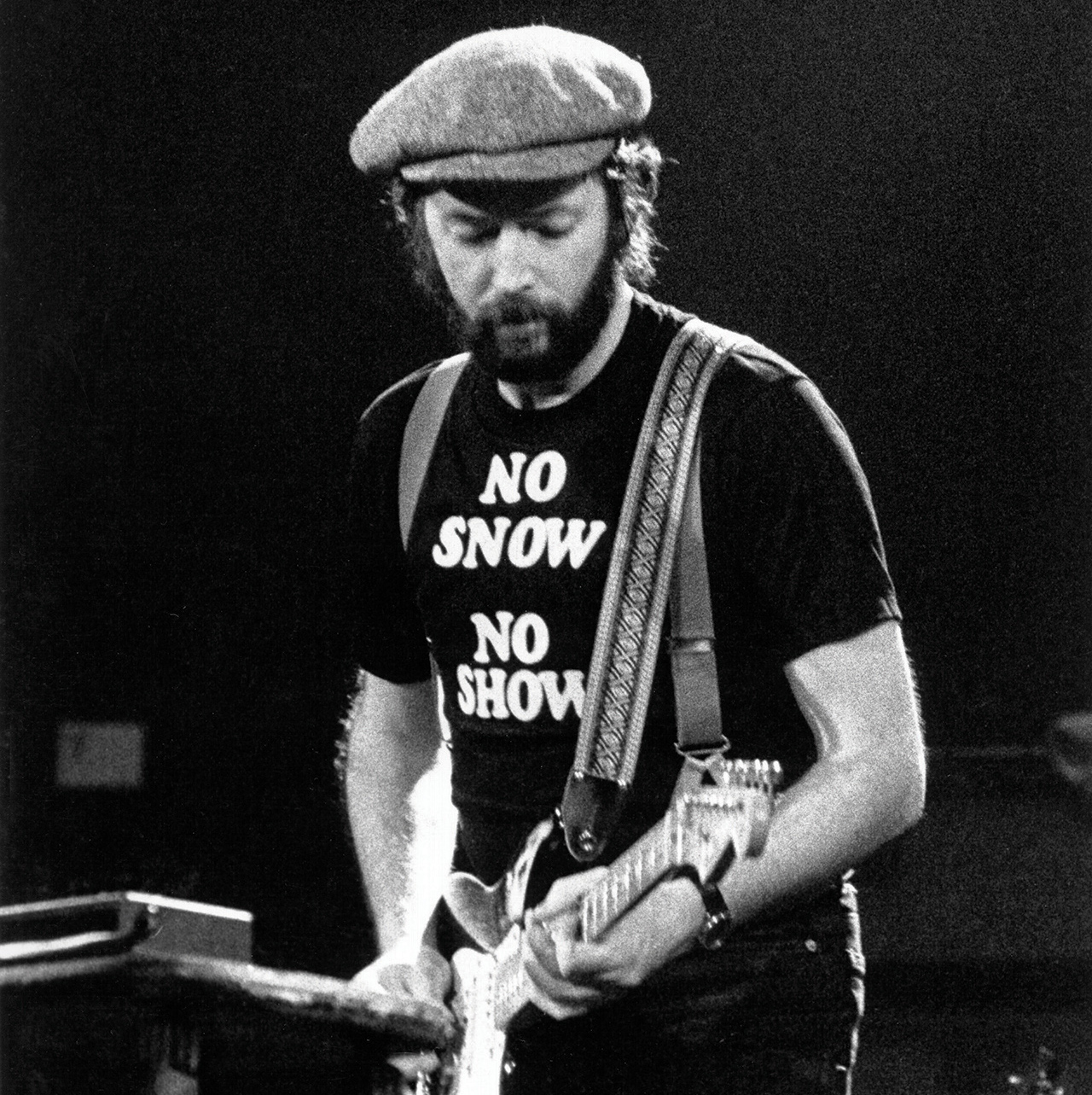
I guess it was a strangely alluring lifestyle, one that was hard to resist?
Yeah. And what saved me was music. Before I was introduced to the twelve-step philosophy, which is a community of people meeting to share their identities and their difficulties, before that I just thought: “Well, as long as I can play… I’ll just stay alive long enough to play.” Alice didn’t have the same kind of anchor. You know, I didn’t see her for a long time, till near the end of her life [in 1995], until a group of people tried to instil some hope into her, but it was too late.
Actually, I wasn’t talking about her specifically, but you nailed it . It’s interesting that you read that really quickly. But there were others. I have a dear friend who lives in America called Nigel [Carroll, personal assistant] who works for me, and he worked for me back then, and I would make him drink and stay on the same level with me. He didn’t like drinking, you know what I mean? Awful. I’d fire him – awful stuff – then rehire him the next day. I’d treat him… It was abuse, you know?
You’re very open about your abusive periods. In your book you describe Pattie as a “slave-cum-partner”.
Well it’s true. Honesty is just telling the truth. I try to be honest as long as I don’t hurt somebody else; I’m not really worried about hurting myself. And I quite like who I am. I like my own company. I’ve got an idea of who I am. And I’m self-deprecating only to keep myself from running away with the idea of how fucking great I am! It’s kind of useful. It’s a practical way of me staying right-side-up.
Total ego meets extreme self-loathing: is it a dangerous cocktail?
It can be. But I think that’s why I think if I lived alone, if I was a recluse, I would be prey to that kind of… syndrome. But I do meet with other people, and my family is very…they’re very consistent. The love in my family is very consistent.
You did once say: “I don’t see a glimmer of hope for the future… I have a death wish… I don’t like life.” Would you still be in touch with those feelings had you not met your wife?
Oh, I don’t know. That’s pretty extreme. When did that quote come from?
Nineteen-seventy-three.
Ha ha. It’s quite typical of the sort of thing a twenty-seven-year-old man would say. Actually it’s more typical of maybe a twenty-five-year-old man, don’t you think?
To quote Meryl Streep on Woody Allen in the film Manhattan, you raised self-loathing to narcissistic extremes?
It’s dilettantish, almost foppish. Kind of: “Save me, somebody!”
You seemed to have needed saving the night in 1977 in Honolulu when you decided to give your band’s drummer a fright by turning up at his hotel room wielding a Samurai sword, prompting the police to arrive brandishing guns.
I can’t believe it was me. Only because I’m not capable of that kind of thing now. But at the time I was capable of that. And I’m not surprised, really. All it needed was a bottle of vodka to make it happen.”
ERIC CLAPTON - THE 80s/90s
“I was starting to think of myself as being an interesting person”
Throughout the next two decades, Clapton was the Armani-clad journeyman and elder statesman, veering from team-ups with Roger Waters and Phil Collins to appearing at Live Aid. But behind the polished superstar veneer all, as ever, was turbulence and strife. He had an affair with Italian model Lory Del Santo, who gave birth to their son, Conor, in 1986. Tragically the child died in 1991 when he fell out of an open bedroom window on the 53rd floor of a Manhattan apartment building. His death was the inspiration for the song Tears in Heaven. In 1998, Clapton founded the Crossroads Centre in Antigua to help users overcome their addictions to drugs and alcohol. He ended the decade with Pilgrim, his intention “to make the saddest record of all time”.
In the seventies it was heroin and booze. By the eighties and nineties you’d swapped horses, and women were proving as dangerously all-consuming as drugs and drink, weren’t they?
Yes. Women and fashion. I’d always loved clothes, and that became a huge interest for me. I was really interested in Italian stuff. I met and loved this lovely Italian lady, we had a child, and I met Giorgio Armani and I met Gianni Versace. And these were really interesting people to me, incredibly gifted, so I was attracted to that. English culture, and fashion, was always much more tweedy and introverted, so when I finally got to Italy in the mid-eighties I was overwhelmed by the vivacity of it all, and the colours and the flamboyance of everything, and I was sucked in, I really loved it. It was part of being gregarious, I suppose, and I was starting to think of myself as being an interesting person. It took me all that time to get a kind of value for myself.
There’s always a dual edge to what you do, so that at the same time as you’re having what you’ve referred to as “crazy sexual liaisons” you also feel suicidal with regard to your relationship with Pattie – both at the same time.
Yeah. Well, I was coming to the end of a drinking career. The highs and the lows are extreme – or they were in my case. It would be a daily occurrence to feel a hundred-and-eighty-degree shift.
And yet you turned a corner in the late eighties and have been making music ever since. Was the brief you had with Pilgrim really to make the ultimate sad album?
Yes. Well, that was my brief to the other musicians. I don’t know if it was the brief to myself. I was trying to give them a map [laughs]. Did I achieve it? Almost.
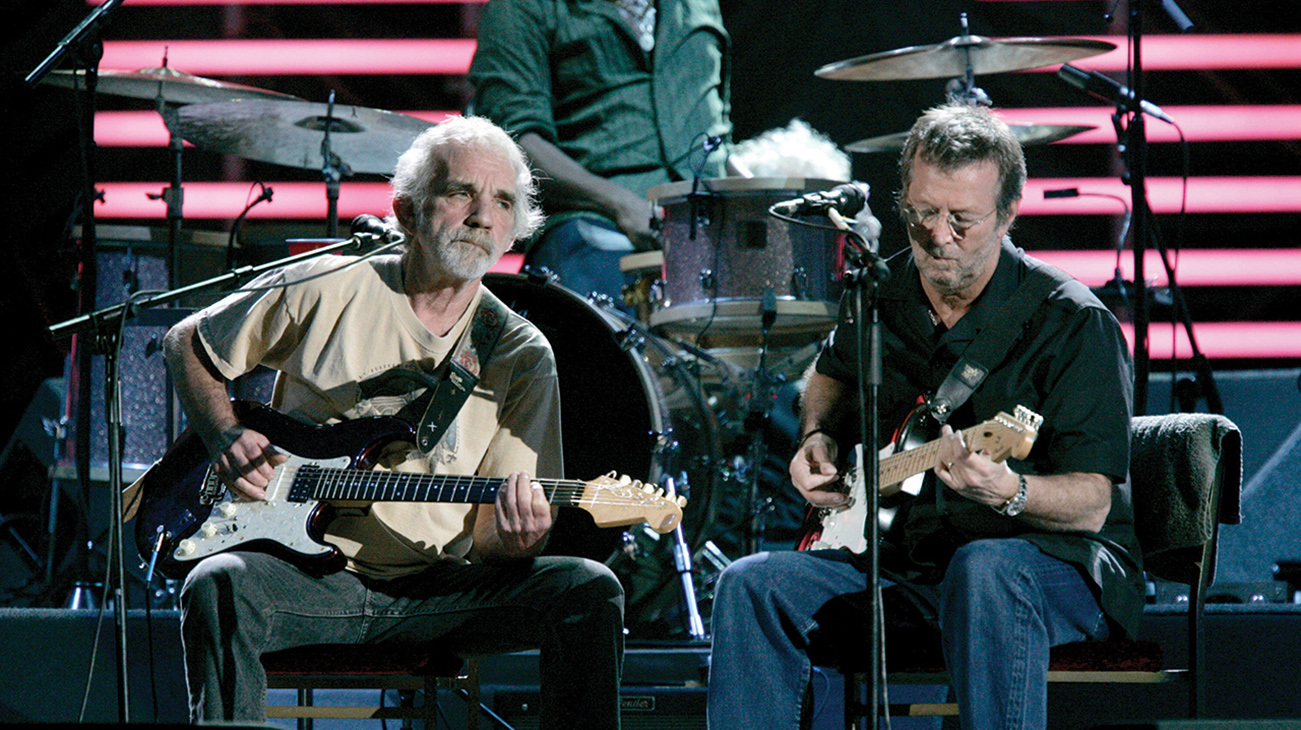
I STILL DO
“My life is really blessed”
Claton’s new album, I Still Do, which has a Peter Blake-designed sleeve, is an engagingly diverse mix of blues songs, JJ Cale covers, oddities and originals, with the occasional blistering solo to satisfy diehards. It finds the old roué perhaps less tormented – he has been happily married to Melia McEnery since 2002 and they have three children – but still in touch with his muse.
Where did the title come from?
It actually came from something a relative – my old aunty – said shortly before she passed away. I was talking to her about when I was a kid and thanking her for being kind, and she said: “I liked you. And I still do.” And I thought, well, that’s as good as it gets. So I kind of made a mental note and thought: “I’ll use that.”
Was it good to be back in the studio with producer Glyn Johns again?
Yes it was. It was a forty-year anniversary, really, from the first time – Slowhand. And I honestly hadn’t seen him for most of that time. I was aware of him moving around and doing different things, but we didn’t bump into each other very much during that time.
Did you have to do any apologising to him for the 1977 sessions?
[Pauses] I’m not sure if I did, you know? I’m not sure if I did. And I don’t think he was expecting it. I’m not even sure if I needed to. As much as I was an unpleasant character, I did actually do the work. In fact I don’t think I got the rough edge of his tongue, either, during the years that we worked together. I saw it happen to other people, and I thought, I don’t really want that coming in my direction, so I’ll just get on with it [chuckles to himself]. So I did. No, I wouldn’t have had much to apologise for. My personality was not good, but my work ethic wasn’t too bad.
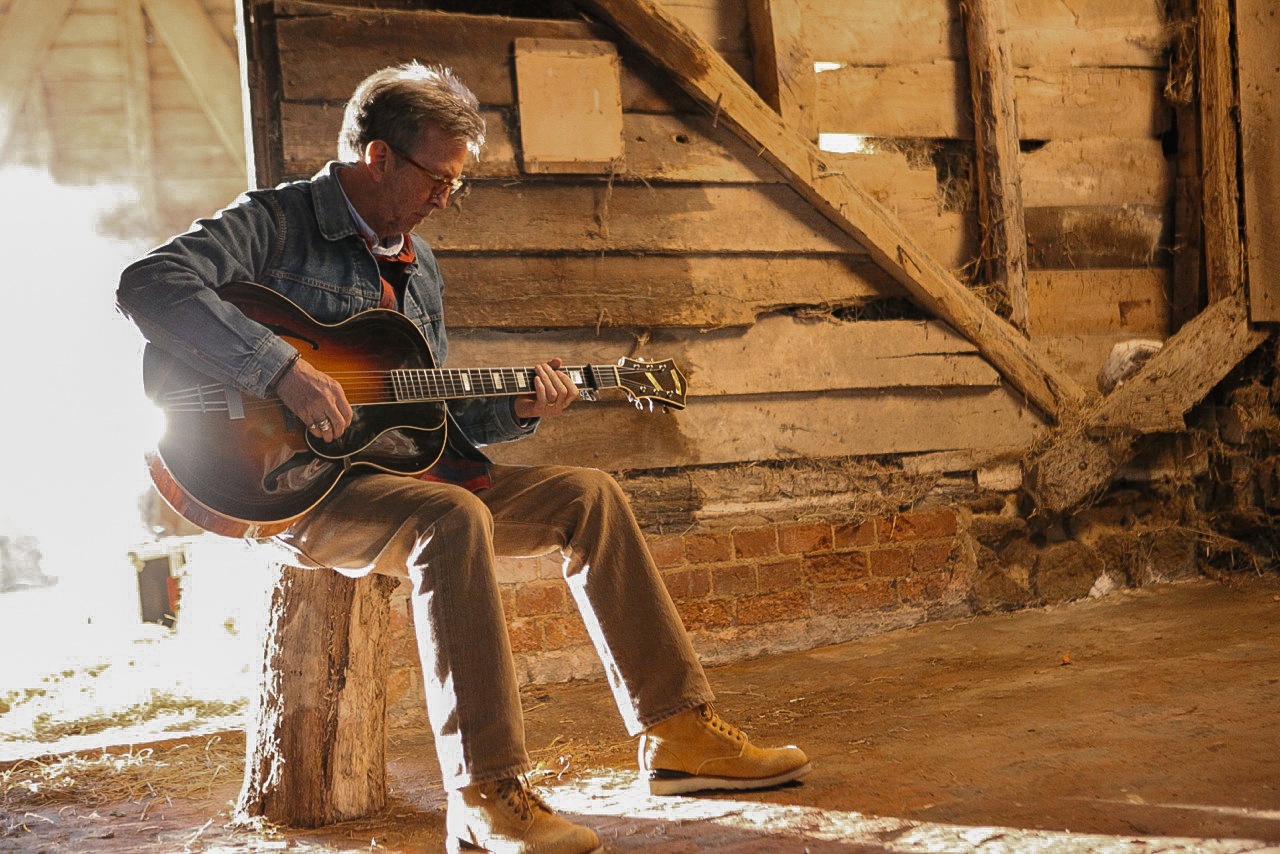
Presumably, accessing the deep feelings that enable you to properly sing the blues – say, on the new album’s cover of Robert Johnson’s Stones In My Passway – doesn’t take much effort?
[Laughs a lot] No! I mean, I’ve had to deal with a lot of physical pain this last year, and I’m starting to come to terms with it. One thing I had to realise was that this particular condition I’m living with isn’t necessarily going to get better. Like sometimes things do – you might catch something, and it will get better. Not this. So I’ve had to acknowledge it and accommodate it. And I’ve found that to be quite enlightening, too, because I’ve learned a lot about my ability to tolerate things, and the human spirit in general has tremendous capacity for that. So to sing about these things is very real for me.
You’ve sort of ‘found God’ twice in your life, at two low ebbs: once in 1970 and again in 1987 where you find yourself praying, at your alcoholic nadir. Is Catch The Blues the latest expression of your religious beliefs?
Well, I find it easy to talk about that, so it’s not difficult to put it in a song. One of the first songs I ever wrote was In The Presence Of The Lord [recorded for the Blind Faith album]. And I was a bit embarrassed about that, to be honest with you, which is one of the reasons why I made Steve Winwood sing it when we were in Blind Faith. Not only because I was embarrassed that I couldn’t sing in front of Winwood – I didn’t have the nerve – but I’d come from a very relaxed upbringing around religion or God. It’s not like when you hear about really strict Catholic upbringings when people get put off or get burned by doctrine or over-zealous religious practices. I was at Sunday School and had a fairly general religious education, so I came to the understanding of God through loving music and through finding it. It was actually a spiritual experience and I would have actual physical responses when I was listening to it. It could be Indian, classical, blues, rock’n’roll, jazz, anything. Sometimes I would feel like the hairs on the back of my neck would stand up. I started to make the connection early on in my life that music was a spiritual experience.
Is the cover of 1940s standard I’ll Be Seeing You meant to be a farewell to your audience and career?
No, no. It’s just a lovely song. A lot of people dropped off over the last couple of years, and I’m kind of singing to them. And it’s not me saying goodbye to everyone who’s still alive, I’m saying goodbye in that song to the people that I’ve had to let go. Not just famous people, but close family and friends and colleagues. This last couple of years have been extraordinary; maybe because I’m reaching that age where funerals become a weekly event. So I’m singing to them, really.
Finally, do you ever play your old records to remind yourself of the journey you’ve been on?
Yes, I do.
Do you wince at some of it, and take pleasure at others?
Exactly that. But I like to see how they look in the period that they were set in, too. Because that’s interesting to me: where they fit into the culture. And where I’ve gone off-piste, as it were. Or I’ve been narcissistic or I’ve lost my way or I haven’t been true to my compass.
But it’s been a good ride. And I’m still here. At the moment it’s going along fine. My life is really blessed. I’ve got a wonderful family, a fantastically beautiful wife, in every way, great kids, and I can still play. I mean, it’s hard work sometimes, the physical side of it – just getting old, man, is hard. But I love to play, still. I sit in the corner of our front room with a guitar, and I play in the morning and I rest in the afternoon… Life is good.
“Eric rang me and said: ‘Of course I’m still your mate!’”
Producer GLYN JOHNS on working with Clapton again, on new album I Still Do.
“The sessions for I Still Do were completely different to the ones for Slowhand and Backless. Eric is far more in control now of everything [laughs]. There was a lot of drinking back then – nothing too unpleasant. He didn’t like working much, he was quite lazy. However, once he sat down with a guitar the amount of time it took him to do it melted away into nothing because he could do everything in one or two takes.
“These days, before he goes anywhere near the studio he has a completely clear picture about what he wants to do: the material he wants to record, the manner he wants to do it, the musicians he wants to play it… Really, he produced this record far more than I did.
“He approached me about doing the record. I wrote a book [Sound Man] a couple of years ago in which I stated how I missed him as a pal – because when he stopped drinking he stopped seeing all the people he’d hang out with, which is a normal thing for alcoholics. And whereas I completely understood the reasons, selfishly I missed him as a mate. So he rang me and said: “What are you talking about? Of course I’m still your mate!” And we had lunch a couple of times and he said: “Let’s make a record.” So we did.
“I wouldn’t say it’s a blues album. There are three traditional blues songs on the record. It’s an extremely eclectic mix. There’s Catch The Blues which is Latin American, a couple of JJ Cale numbers, a very early gospel song, and I’ll Be Seeing You which is not bluesy in the least. But of course he tips his hat to the blues, because that’s what he is – a bluesman.
“I got lucky with the Slowhand period. I walked into that. That band had just finished a tour, they’d been playing a lot together, and the spirit and the sound were exceptional – like this new one. That record was incredibly easy to make. And the sessions for this one were astonishingly easy and the quality of musicianship was astounding.
“We didn’t have to break any ice, good Lord no. Although I stopped working with him after Backless we’ve been mates forever. We started recording at the beginning of October [2015] and finished it just before Christmas. The only problem we had was that Eric wasn’t terribly well, which was exceedingly frustrating for everybody and particularly unpleasant for him. But he refused to not turn up and he refused to not play when he should have done. His major problem is that, as a result of the treatment for his other ailments, he got eczema. And that would have been alright except that it went to his hands, and so he found it incredibly difficult to play because the skin was shredding off them. It drove him nuts not to be able to play. But that’s why there’s bottleneck/slide on the record, because on some days he couldn’t play any other way.
“One of the things I didn’t think about till this record is that Eric never let the grass grow under his feet, from The Yardbirds on. He got pissed off with them and left to join Blues Breakers, but he never sat back on his laurels. Whichever band he was in they were invariably incredibly successful, but he was never frightened to walk away if they started getting away from what he wanted to do. It’s very courageous.
“I saw him play a blues set in LA about ten years ago, about two-and-a-half hours long, and it was probably the best concert I’ve ever seen. It was astonishing. His voice had improved dramatically from when I worked with him, and his guitar playing just blew me away. I don’t think I’ve ever met anyone with the same unfettered wear-it-on-your-sleeve enthusiasm for playing. And he’s still got it.”
